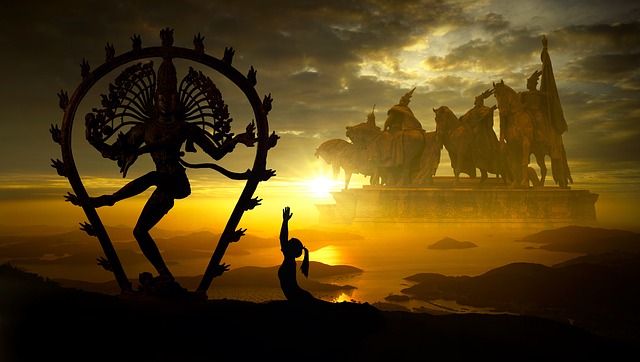Being vegetarian has become one of the defining traits of Hinduism in the west. Even if a person knows nothing much about Hinduism, he/she is convinced that ‘Hindus’ as a rule don’t consume meat. No wonder, vegetarianism was India’s major cultural exports into the west besides yoga. Thanks to the obsession of reducing Hinduism to a single behaviour despite the fact that Hinduism is naturally pluralistic and there is no such thing as a Hindu commandment dictating the followers what to eat and what not to eat.
Being a Hindu and being a vegetarian are two distinct
things
Going by the statistics, in India with 80% Hindu population, a whopping 70% people are non-vegetarians and only 30% people are vegetarians. Different communities and cast have different food habits in India, and there is no one rule. Although Brahmins are mainly vegetarians, the same is not true in Bengal and Kashmir. Both, Bengali Brahmins and Kashmiri Pandits indulge in non-vegetarian food. They even offer non vegetarian food to the deities they worship – Fish to Goddess Kali and Meat to Bhairav, a form of Lord Shiva.
A temple in North Malabar dedicated to Sree Muthappan offers a customary prasad that consist of baked fish and meat. The same is true in Assam where meat is served to devotees in Kamakhya temple. It is not a modern-day practice it has been the way it is from time immemorial now. Besides, early Hinduism was a lot into animal sacrifice which still prevails in some sects.
While the Vaishnava traditions follow vegetarianism because Lord Vishnu is a vegetarian, there is no restriction or compulsion on the same. Other traditions like Shaivism, Shaktism indulge into non-vegetarian food. Even the Hindu Gods in their different avatars have consumed blood and non-vegetarian food. Vishnu as Narasimha have drunk blood and Siva being a hermit eats whatever he is offered. The very concept that Hinduism or Buddhism emphasize a vegetarian diet is totally misguided.
Meat Eating Is Neither Wrong nor a Sin in
Hindu Culture
Hinduism does not insist on a vegetarian diet and besides there is neither any central authority nor a central scripture in Hinduism that boasts on vegetarianism. Meat eating is not wrong in the Hindu culture. In fact, the diet in the Hindu culture was purely based on the person’s profession (which was based on caste). Leaving aside the warriors’ traders and workers, the spiritual seekers (those who mainly want liberation and nothing else) didn’t favor meat as they yearned to lessen their animal nature as much as possible, making their desires and personality as lightweight as possible. The idea being that food has life-energy in it.
This is the reason why ascetics and celibates ate more of the raw food like nuts and fruits and not so much of the cooked food. They also gave lot of emphasis even on the ‘portions’ and so they ate very little and also avoided eating yesterday’s food. Till today, you can find yogis and people in ashrams eating like this. These are the methods to take in maximum life-energy from minimal food.
A spiritual seeker wants to be in a state of being where he wakes up before sunrise, sleeps very little, eats very little and is always brimming with life energy. Non veg food is not very conducive to creating that lifestyle. This is the reason why they didn’t indulge in non-vegetarian food as that would make their spiritual progress a little more difficult. No wonder, it is believed that you would imbibe to some extent the animal characteristics of what you are eating. Adapting vegetarian diet by a certain sect was a lifestyle, and not a religion dictum.
Nevertheless, even though the spiritual quest is central to Hindu culture, very few people (even in the past) pursue it. Out of the four goals (Dharma, Artha, Kaama, Moksha), most people pursue the first three (Righteousness, Wealth, Desires) and only a few people actively seek Moksha (Liberation). Only these people take steps to optimize their lifestyle with things like food and sleep, to make that quest easier and quicker. The rest usually pursue taste and other pleasures, and eat non-veg, and there is nothing wrong with that. It is not considered “sin” and doesn’t have any negative connotation to it.
Yes, Hinduism does not lay down any rigid “do’s and don’ts” and as such there are no commandments. Meat eating is neither wrong in the Hindu culture nor a sin. On the contrary, Hinduism does gives Hindus the freedom and choice to make up their own mind on what they put in their body.


